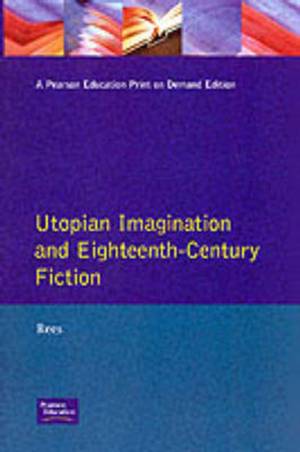
- Retrait gratuit dans votre magasin Club
- 7.000.000 titres dans notre catalogue
- Payer en toute sécurité
- Toujours un magasin près de chez vous
- Retrait gratuit dans votre magasin Club
- 7.000.0000 titres dans notre catalogue
- Payer en toute sécurité
- Toujours un magasin près de chez vous
Description
Utopian fiction was a particularly rich and important genre during the eighteenth century. It was during this period that a relatively new phenomenon appeared: the merging of utopian writing per se with other fictional genres, such as the increasingly dominant novel. However, while early modern and nineteenth and twentieth century utopias have been the focus of much attention, the eighteenth century has largely been neglected. Utopian Imagination and Eighteenth Century Fiction combines these major areas of interest, interpreting some of the most fascinating and innovative fictions of the period and locating them in a continuing tradition of utopian writing which stretches back through the Renaissance to the Ancient World. Begining with a survey of the recurrent topics in utopian writing - power structures in the state, money, food, sex, the role of women, birth, education and death - the book brings together canonical eighteenth century texts countaining powerful utopian elements, such as Robinson Crusoe, Gulliver's Travels and Rasselas, and less familiar works, to examine the reworking of these topics in a new context. The unfamiliar texts, including Gaudentio di Lucca, are described in detail to give students an idea of relevant material across a broad area. A section is devoted specifically to women writes, an area which has become the focus of attention. The mixture of texts provides a useful cross-reference for students tackling the subject from various perspectives and the comprehensive bibliography provides a valuable tool for those with general or specific interests
Spécifications
Parties prenantes
- Auteur(s) :
- Editeur:
Contenu
- Nombre de pages :
- 304
- Langue:
- Anglais
- Collection :
Caractéristiques
- EAN:
- 9780582067363
- Date de parution :
- 24-08-95
- Format:
- Livre broché
- Format numérique:
- Trade paperback (VS)
- Dimensions :
- 139 mm x 215 mm
- Poids :
- 371 g

Les avis
Nous publions uniquement les avis qui respectent les conditions requises. Consultez nos conditions pour les avis.






